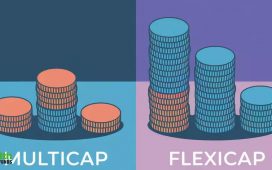Fast fashion labels, fossil fuel companies and SUV-makers are present in EU-regulated “sustainable” funds that tout their ethical credentials in their names, the Guardian and media partners can reveal, with $18bn (£14bn) of their investments going to the 200 biggest polluters.
Investors hold more than $87bn (£68bn) in funds that disclose under environmental and social sections of EU sustainable finance rules while including some of the biggest emitters of planet-heating gas, an analysis of data from the last quarter of 2023 shows. About one-fifth of the $87bn investments come from funds that also market themselves using environmentally-friendly terms.
Campaigners have called for tighter rules on labelling, arguing that the current system confuses investors and means ordinary people unwittingly contribute to climate breakdown.
“Pension savers and the general public are being misled when it comes to sustainable finance,” said Lara Cuvelier, a sustainable investment campaigner at Reclaim Finance.
The investigation, led by Voxeurop in partnership with the Guardian and other media partners, identified the 25 biggest polluters in each of the eight most carbon-intensive sectors and tracked investments from funds that disclose under the EU’s sustainable finance directive.
The bulk of investments into the 200 biggest polluters came from funds classified under article 8, which promotes environmental or social goals, with a further $2bn coming from funds classified under article 9, whose main objective is sustainable investment.
The regulations were not designed for marketing purposes but the classifications are often used to showcase a financial product’s environmental credentials. This month the European Securities and Markets Authority (ESMA) and European banking and insurance watchdogs called for sweeping reforms to the system to tackle greenwashing.
“Status as ‘article 8’ or ‘article 9’ products have been used since the outset in marketing material as ‘quality labels’ for sustainability, consequently posing greenwashing and mis-selling risks,” the watchdogs said. They called instead for simpler product categories that are clearer to investors.
Campaigners have criticised the scale of the misuse. The analysis found that $11.7bn of investments into the biggest polluters came from funds whose name included “ESG” – environmental, social and governance – while $1.1bn came from funds whose names included climate-specific words such as “clean”, “transition”, “net zero” and “Paris”.
The latter two terms refer to the Paris climate agreement that world leaders signed in 2015 to try to stop the planet from heating 1.5C (2.7F) above preindustrial levels by the end of the century – a task that entails slashing pollution fast to hit net zero emissions by 2050. Despite this, the top 10 recipients of EU-regulated green funds include fossil fuel companies drilling for more oil and carmakers selling ever bigger vehicles, the analysis found.
“Europe’s biggest green portfolios are just the same dirty companies, repackaged as sustainable,” said Xavier Sol, the sustainable finance director at the campaign group Transport and Environment.
“We need private capital to accelerate the green transition rather than hinder it,” he added. “Only investments earmarked for green activities should be given a sustainable label.”
The ESMA adopted an updated set of guidelines last month that prohibits funds with significant fossil fuel investments from marketing themselves as green. The rules, which will come into effect later this year, are not legally binding, and national regulators can choose to ignore them.
Cuvelier said regulators had so far only shown investors the carrot, and not the stick. “We’re seeing now that it’s not enough,” she said.
after newsletter promotion
The analysis also found one-quarter of the investments into big polluters came from just 10 asset managers. Several of them said they complied with the EU’s regulatory framework and would update policies if they were to change. They challenged the claim that their investments conflicted with climate goals.
Amundi said: “The energy transition will only happen if all economic players change. Amundi therefore has a duty to support and encourage the transformation of all companies and sectors.”
Intesa Sanpaolo said: “Investments in high-carbon sectors do not conflict with either the SFDR [sustainable finance disclosure regulation] goals of transparency in sustainability investments, or with the Paris agreement, which promotes a transition to a low-carbon economy.”
Fidelity said: “As active stewards of capital, we believe that fostering change through a positive engagement approach rather than exclusion (or disinvestment) policy is the most effective way to positively influence corporate behaviour.”
Experts are divided on the benefits of excluding big polluters from investment funds. Campaigners have argued that divesting from fossil fuel companies reduces their share prices and makes it harder to get loans for new projects – pressing them to go green faster. Others have cautioned that the financial consequences for the companies are small – particularly for profitable oil and gas firms that do not need to issue new shares to finance their operations – and that divestment campaigns are more useful in challenging their “social licence to operate” rather than hitting their bottom line.
“Decarbonisation is such a massive task that establishing a small ‘green niche’ of sustainable investment funds on its own will contribute very little,” said Jan Fichtner, a sustainable finance research fellow at the University of Witten/Herdecke. “EU rules should focus much more on setting credible and binding minimum standards for proxy voting and private engagements – for sustainable funds but also for conventional funds.”
This article is part of an investigation coordinated by Voxeurop and European Investigative Collaborations with the support of the Bertha Challenge fellowship. Stefano Valentino is a Bertha Challenge fellow 2024.










